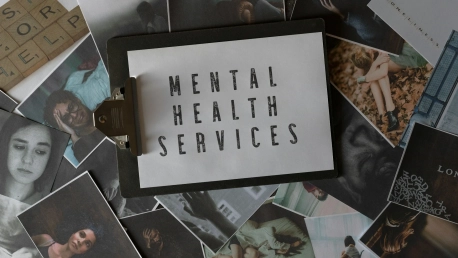North Carolina is undergoing a significant transformation in its approach to mental healthcare. This renaissance comes in the wake of a history fraught with limited access, predominantly emergency-room-based crisis intervention, and insufficient integration with primary healthcare. However, recent developments, spurred by legislative actions, have set the stage for a broad, systemic overhaul aimed at expanding mental health access, strengthening care infrastructure, and cultivating a workforce prepared to face the challenges of contemporary mental healthcare needs.
Embracing Medicaid Expansion for Mental Health Access
Central to North Carolina’s mental healthcare transformation is the expansion of Medicaid under a $30 billion spending plan. This move promises to extend coverage to around 600,000 individuals who previously lacked health insurance—providing much-needed access to mental health services. Such a policy is not only a lifeline for low-income residents but also signifies a paradigm shift towards ensuring that every individual has the opportunity to receive appropriate mental health care when needed.Expanding Medicaid also serves as a bolster to rural health practices, many of which have struggled to stay afloat financially. By increasing the number of insured patients, these practices can now anticipate a more secure future. With the financial balance restored, rural health providers can focus on enhancing services and recruiting the necessary specialists to improve the mental well-being of their communities.
Dismantling Emergency Rooms as Primary Psychiatric Facilities
North Carolina’s spending plan acknowledges the inappropriateness of emergency rooms as the default option for psychiatric emergencies. Historically, these settings have not been conducive to managing mental health crises and often contribute to patient trauma. Recognizing this, the state is investing in alternative transport methods for psychiatric patients and aims to curtail the often traumatic interactions with law enforcement—reducing the distress caused by involuntary admissions.These initiatives are part of a broader strategy to establish a care environment that respects the unique requirements of individuals experiencing a mental health crisis. By removing the reliance on emergency rooms and police involvement, North Carolina is making strides toward creating a more empathetic and effective system for managing mental health emergencies.
Enhancing Primary Care with Mental Health Integration
North Carolina is remapping the traditional boundaries between primary care and mental healthcare. The state’s investment supports the NC Psychiatry Access Line, enabling primary care providers to consult with psychiatry experts. This fusion of disciplines is a step towards a collaborative care model where common mental health issues can be treated seamlessly within the primary care setting, ultimately leading to more holistic patient care.This integrative model is especially vital given the high occurrence of comorbidities between mental and physical health conditions. By equipping primary care practitioners with the tools and expertise to address mental health, North Carolina is ensuring that mental well-being is an intrinsic part of comprehensive patient care.
Investing in Crisis Response Alternatives
In furtherance of a modernized mental healthcare system, North Carolina is also rethinking crisis intervention. Over two years, the state is allocating $80 million towards creating mobile crisis teams and crisis and respite facilities. These initiatives aim to provide an immediate, specialized response to individuals in crisis, diminishing the risk of escalation often associated with police involvement.This investment signals a move away from traditional, enforcement-centric approaches to a more care-focused model. By fostering specialized crisis response teams and facilities, North Carolina is setting a precedent for ensuring that mental health crises are met with the appropriate level of care and compassion.
Strengthening Workforce Development and Access
Recognizing that an effective mental healthcare system necessitates a robust workforce, North Carolina is injecting funds into personnel development and retention. Financial incentives, including improved reimbursement rates for healthcare professionals, sign-on bonuses, and retention incentives at state mental health facilities, are designed to build a more resilient and expanded mental health workforce.These measures aim not only to retain existing talent but also to attract new professionals to the field. It’s a recognition that a sustainable mental health system relies heavily on a workforce that is both skilled and passionate about delivering quality mental health care.
Recognizing Mental Health as Primary Care
In its pursuit of a healthcare revolution, North Carolina is solidifying the position of mental health care as a fundamental aspect of primary care. By collapsing the barriers between physical and mental health services, the state aspires to cultivate a healthcare ecosystem where mental health is destigmatized and openly addressed as part of routine health maintenance.The resolute approach to integrating mental health into primary care challenges the traditional segregation of services and aligns with contemporary understandings of health that emphasize the inseparability of mental and physical well-being. This groundbreaking stance underscores the indispensability of mental health in the collective health narrative.
Tackling Rural Access and Telehealth Services
Finally, North Carolina is addressing rural access and expanding telehealth services, taking clear steps to improve the availability and convenience of mental healthcare, particularly for underserved communities. These modern interventions are crucial for bridging the gap in access to care, making it possible for individuals in remote areas to receive timely and appropriate mental health support.









